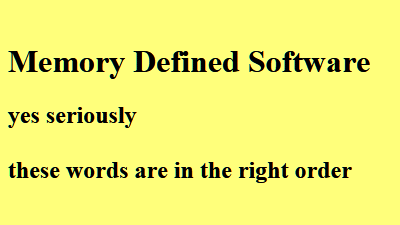 |
|
| leading the way to the new storage frontier | ..... |
 |
|
| RAID systems | .. |
 |
|
| top SSD companies | .. |
 |
|
| SSD controllers | .. |
 |
|
| PCIe SSDs | .. |
|
|
|
|
| ||||||||||||||||||||
| ..... |
There are over 100 RAID
Manufacturers on StorageSearch.com ...
November 2000 - by Zsolt Kerekes editor 514 acquired, dead, renamed & gone away storage companies - Jan 2000 to Dec 2009 |
| |||||||||||||||
| Let me
begin by confessing my self interest... No, I'm not trying to talk up the
share of any particular company, in fact I only have shares in the privately
held company which publishes this site. But when you publish a directory
like this one, you do start to develop a vested interest in the market
which you are covering. You want it to grow and succeed. More products and more suppliers are a good thing for a publisher, because then things get really complicated and users have more need to refer to a guide of "who makes what". On the other hand:- markets which are dominated by a single large supplier are a bad thing for publishers as well as buyers. If you already know the answer, you don't need a guide. So you can imagine my growing unease as we started to research the hard drive section of STORAGEsearch in the summer of 1998. The more we looked, the less companies we found still in business making these products. From a high point of over 60 winchester disk manufacturers in the late 1990's, the number of suppliers has dropped to less than 15 today, and due to mergers and rebadging arrangements that could well drop even further by the time you read this article. So what has this got to do with the health of the RAID market? Apart from the fact that most RAID systems are stuffed with disk drives... As the number of RAID systems manufacturers heads into 3 digits, I did start to wonder whether, in the years to come, it might be necessary to delete most of these links again due to future rationalization and consolidation. The factors which support this view include:-
I'm not trying to be rude here, in fact many of my closest friends are marketers, and even my wife runs a training company which focuses on training IT marketers in many of the world's biggest companies. But the reality is, when you work in an industry that's changing so fast it's difficult enough keeping up with the intricate details of what product you're selling this month, and who your biggest resellers are. By the time you know that, your head starts spinning again as you try to work out your strategies for web storage, CRM, Linux, NAS, DAS (and did I forget to mention ASP strategy?) and signing up at least 50 other companies to join in your latest compatibility alliance. All that while deciding what percentage of the money which you don't have enough free time to spend should just go into the stock options scheme or into that new IPO your neighbor told you about last week. Let's go back to the shape and size of the box, because I think those are the real strategic issues in the RAID market. That's a major difference between RAID systems and the disk drive market, because all disk drives have to be made to standard sizes, and in fact aren't seen by anyone once they're installed wherever they're going. None of the disk drive companies were good enough marketers to learn from Intel's Intel Inside® branding campaign. Most users don't care what drives go inside their PC systems as long as they go fast, are cheap enough and don't melt the plastic, but they do care about whether it's an Intel or AMD or (long list of companies who dropped out of the X86 compatible chip market) or whatever. Hey, most of them never get to see the chip, but they do vote with their check books to make sure they get that "Intel Inside®" label. In today's RAID systems market you do get to see the box. And everyone has their own technical and asthetic preference for how it should look. That's a market model which does support diversity. For example there are thousands of companies which make PC's, and it's quite possible that the RAID market could follow the PC model. Did I mention Intel? Yes. Well as we all know Moore's Law (which refers to semiconductors) says that capacity doubles every 18 to 24 months. There isn't a comparable law for disk storage, but I can remember that the 5M disk pack in a Data General Eclipse minicomputer in 1980 was about the same physical size as a 2T RAID rack today. Those numbers are too big for my non scientific solar powered calculator, but if I got the zero's in the right place, that looks like a 400,000 increase in 20 years. You can see where I'm heading on this one. Today, the EMC sales guys will sell you their big disk box for about $1M and you'll buy it because you like their particular box. Similarly you may decide to buy a nifty desktop RAID box to go with your PC or MAC server because you like the color. That idea is compatible with a market which has hundreds of RAID manufacturers... But as the systems start getting smaller, some companies are going to put the RAID inside the desktop, and then the shape and color won't matter anymore. You can fit a fault tolerant RAID system with a large number of 0.5" drives quite comfortably into one of today's 3.5" disk bays. Or maybe you won't have a box under your flat screen PC, but you'll plug into a network socket and buy your storage over the web. Whichever way is the way of the future, most users will no longer see the RAID box which holds their data. OK there will be some super RAID boxes in data centers just like you get today, but as the average size of corporates becomes smaller, this market will change beyond recognition. So this is a wake-up call to RAID manufacturers to start branding their products, for the day when the only thing that the user sees is that little label which says "RAID powered by xxx". Did I mention that Intel has started to make RAID? Afterword:- Maybe, when there's no more need for a storage directory, there's an alternative business we could get into in which we just print labels with pictures of mice on them and then let someone else make the RAID systems? You are not alone... We're all confused! I don't know all the answers. Even Spellabyte's crystal ball goes cloudy on these questions. We'll just have to wait and see, and in the meantime... Be careful out there. | ||||||||||||||||
 |
||||||||||||||||